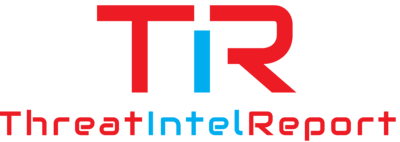In early July 2024, HealthEquity, a prominent U.S. health savings account (HSA) and healthcare services provider, reported a significant data breach. The breach compromised the protected health information (PHI) of approximately 4.3 million individuals, making it one of the largest healthcare-related breaches of the year.
What Happened?
HealthEquity detected the breach when they observed anomalous behaviour from a partner’s device that had access to their systems. Further investigation revealed that this partner’s account had been compromised by hackers, who subsequently used it to infiltrate HealthEquity’s systems and access sensitive health data. The compromised data included sensitive information like:
- Patient names
- Health insurance details
- Treatment records
- Social Security numbers(CyberSec UK)(World Economic Forum).
This breach posed serious risks, including identity theft, insurance fraud, and unauthorized access to personal medical histories.
Method of Attack
This breach occurred through a third-party partner with access to HealthEquity’s systems. Hackers compromised the partner’s account, which gave them legitimate access to HealthEquity’s network. By exploiting this access, the attackers were able to bypass traditional security measures, underscoring the risks associated with third-party integrations in the healthcare sector.
Such breaches, where third-party accounts or services are exploited, have become increasingly common as attackers target weaker security links within the broader supply chain of organizations(
Potential Impact on Affected Individuals
The exposed protected health information (PHI) is particularly sensitive, as it can be used not only for identity theft but also for medical fraud. Stolen health information can lead to unauthorized insurance claims or the creation of fraudulent medical histories, both of which can have devastating long-term effects on victims. HealthEquity is offering affected individuals free credit monitoring and fraud protection services as part of its mitigation efforts(
HealthEquity’s Response
Upon discovering the breach, HealthEquity immediately:
- Isolated the compromised systems to prevent further unauthorized access.
- Initiated a thorough investigation with external cybersecurity experts to determine the scope of the attack.
- Reported the incident to regulatory authorities, including the U.S. Department of Health and Human Services (HHS), in compliance with the Health Insurance Portability and Accountability Act (HIPAA) requirements.
HealthEquity has also reached out to affected individuals, informing them of the breach and providing steps they can take to protect their information. They are working closely with law enforcement to track down the perpetrators behind the attack(
Lessons Learned and Mitigation
This breach highlights the ongoing risks posed by third-party access to sensitive systems, especially in the healthcare sector. Organizations should:
- Limit third-party access to sensitive data and systems wherever possible.
- Regularly audit third-party partners for compliance with security protocols.
- Implement multi-factor authentication (MFA) and endpoint security to further safeguard access.
Additionally, healthcare organizations must ensure robust data encryption and real-time monitoring of any external access to PHI to prevent unauthorized exploitation of compromised accounts(
The HealthEquity data breach underscores the critical need for stringent third-party security practices in healthcare. As attackers continue to exploit the weakest links in supply chains, healthcare organizations must take proactive measures to secure their networks, safeguard sensitive health information, and ensure that third-party partners adhere to the highest security standards.
Further Reading
- How to Protect Your Health Information From Data Breaches
- HealthEquity’s Official Statement on the Breach
- Understanding Third-Party Risk in Healthcare
- Data Breach Risks in the Healthcare Sector
